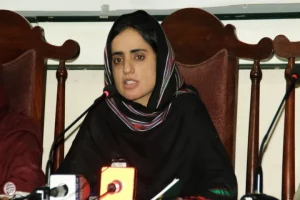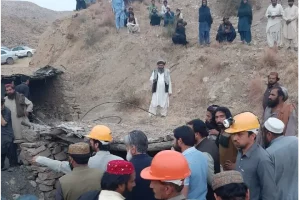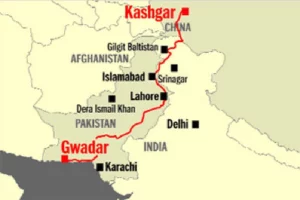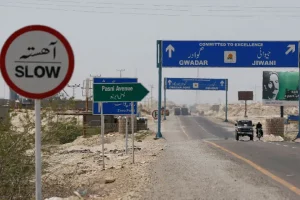Chinese workers in Pakistan, especially in the resource-rich Balochistan province, have told BBC Urdu news that they feel unsafe in the country. They also say that they are feeling miserable in their current living conditions.
A large number of Chinese nationals are working in Pakistan due to intense economic relations between the two nations. Most are working on the Belt and Road Initiative (BRI) project—the China Pakistan Economic Corridor (CPEC), which links south-west China to the Pakistani ports of Gwadar and Karachi.
Many Chinese workers operate plants that have been imported from China. As there is nobody who understands these plants in Pakistan, these are exclusively manned by Chinese people who live inside these factories.
With the security situation deteriorating in Pakistan, the Chinese feel imprisoned inside the factories. They are monitored constantly by CCTVs that watch their every step. The workers are surrounded by high walls with barbed wire fencing all over.
What is worse is that Pakistani security personnel from the Frontier Corps are literally shadowing the Chinese workers inside the premises.
The Chinese workers have told the BBC that the attacks have not only affected the quality of their lives but have caused a deterioration in relations between the two nations. China and Pakistan call themselves all-weather friends.
The Balochistan Post has picked up the BBC Urdu story.
The Baloch newspaper says that Chinese workers are anxious over the rising attacks on their co-workers. Now many have stopped leaving the premises where they work. The workers also complain how their living conditions make them feel miserable.
The newspaper says that the Pakistanis working on Chinese projects are facing the repercussions. They have been asked to provide bullet-proof vehicles for the Chinese. They also have been asked to restrict the movement of the foreign workers in a bid to protect them from possible attacks. This has added to the woes of the Pakistani factory owners.
BBC Urdu has spoken with not just Chinese workers but also Pakistani proprietors who admit that things are not easy. The fears faced by Chinese nationals in Pakistan are not unwarranted.
There have been a series of attacks on the Chinese, particularly in Balochistan. Baloch nationalistic groups have targeted Chinese projects and people as they feel that China is exploiting their resource rich land without benefits accruing to them.
The Baloch community alleges that China is supporting Pakistan in the “subjugation, oppression and genocide” of the Baloch people. And this is happening not just in Pakistan but in neighbouring Afghanistan which has been taken over by the Taliban militants.
In one of the latest attacks in August, the Baloch Liberation Army (BLA) carried out a bomb attack on a motorcade carrying Chinese workers resulting in the deaths of two children and injuring many people.
Similarly, two Chinese engineers were killed in a gun attack in Karachi's industrial area in July.
In one of the most audacious attacks, nine Chinese engineers were killed in July when their shuttle bus service was attacked by a car bomb. Over two dozen Chinese nationals were injured.
The Chinese ambassador too was targeted through a bomb attack at his Five-star hotel in Quetta in April this year. Though ambassador Nong Rong escaped unhurt, four others were killed in the attack.
Even the Karachi stock exchange was attacked by the BLA in July 2020 killing nearly 11 people.
The CPEC was initiated in 2016 but the Baloch groups intensified their attacks on both Pakistani forces as well as Chinese workers in 2018.
The Chinese-built Pearl Continental hotel too also targeted in Gwadar in May 2019.
The Chinese people in Pakistan have appreciated the increase in security by Pakistan but they also feel that more safety measures can be undertaken by Pakistani agencies.




















